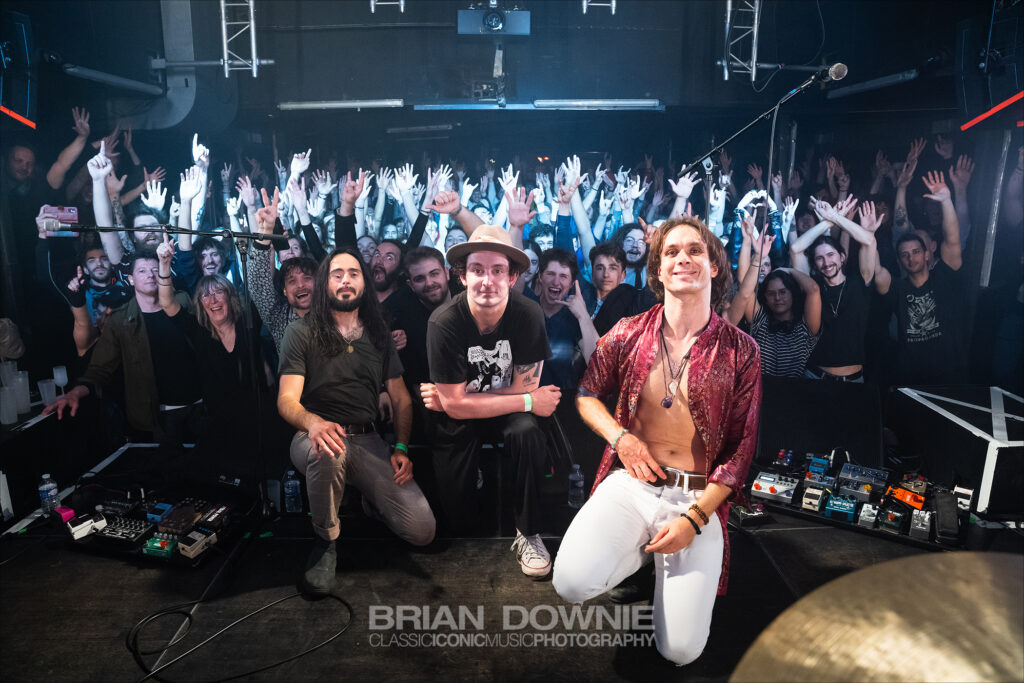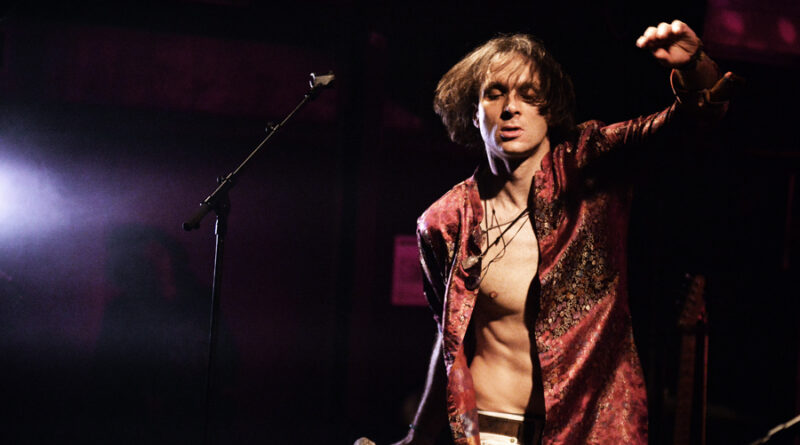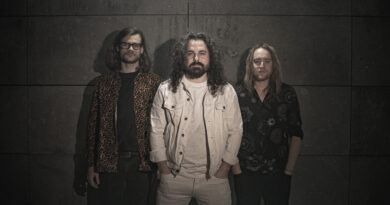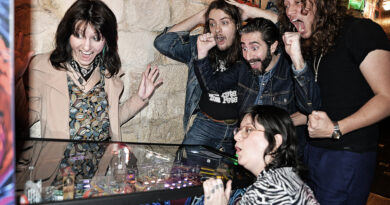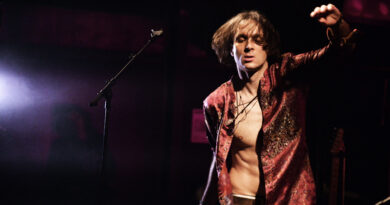Interview with DIRTY SOUND MAGNET
“We play creative rock!”
Dirty Sound Magnet, power trio of psychedelic rock-progressive-blues coming straight from Switzerland, not necessarily a country known for its rock bands, were due to land in Paris on April 6 at Petit Bain. But due to the unusually high level of the Seine this weekend we had to wait until the next day to see them live. K-RPM took this opportunity to have a chat with singer/guitarist Stavros after the concert, discussing spirituality, the religion of music and how to succeed in the face of adversity.
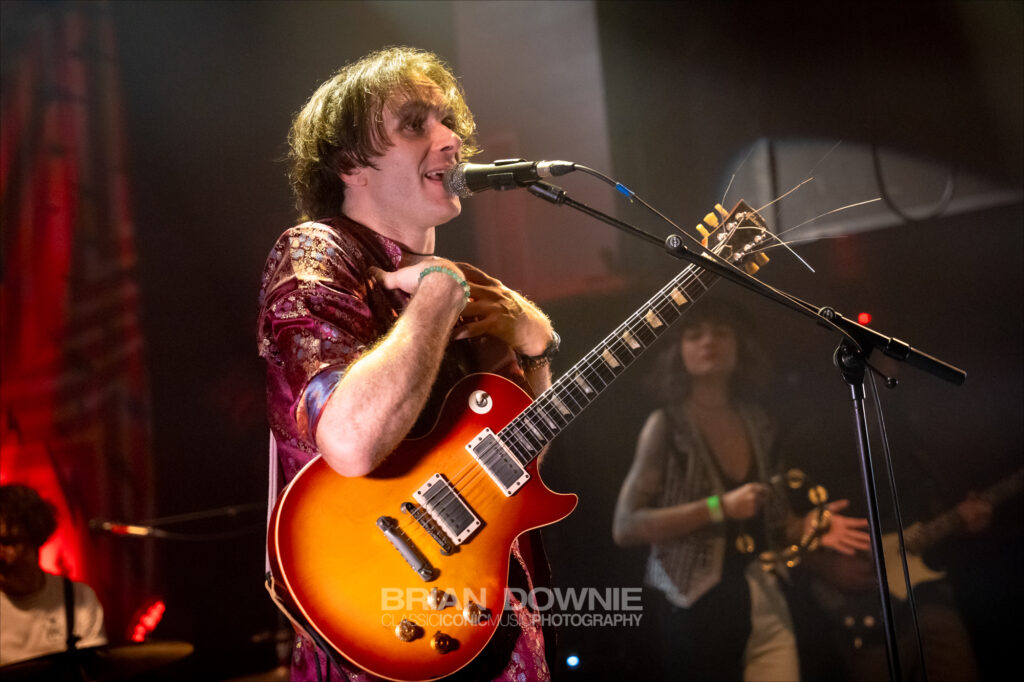
Hello Stavros, how are you ? Good and you ? Perfect thanks ! Happy to be in Paris ? Very very happy yes! Having one more day ? Yeah we couldn’t even do any tourism yesterday since the schedule was already short, but we went to see a gig seeing as our gig was cancelled! You’ve already been here? We played at Supersonic last time, I think, during COVID (April ’22).
To put things in perspective, can you tell us who you are and where you come from ?
We are Dirty Sound Magnet, from Fribourg (Switerzland) but multicultural I’d say. Maxime the drummer is pure Swiss, Marco the bass player is Italian-Swiss and I am half-Greek and half-Hungarian.
And if you had to describe your style in two words ? Challenge !
Creative rock! It means limitless rock, we have the freedom to go were we want. Now if you ask me to list our influences I would say psychedelic, progressive, blues, funky, experimental … but creative rock is good.
I have read in your press kit that your music is “a fusion of the energy and instrumental virtuosity of Led Zep,
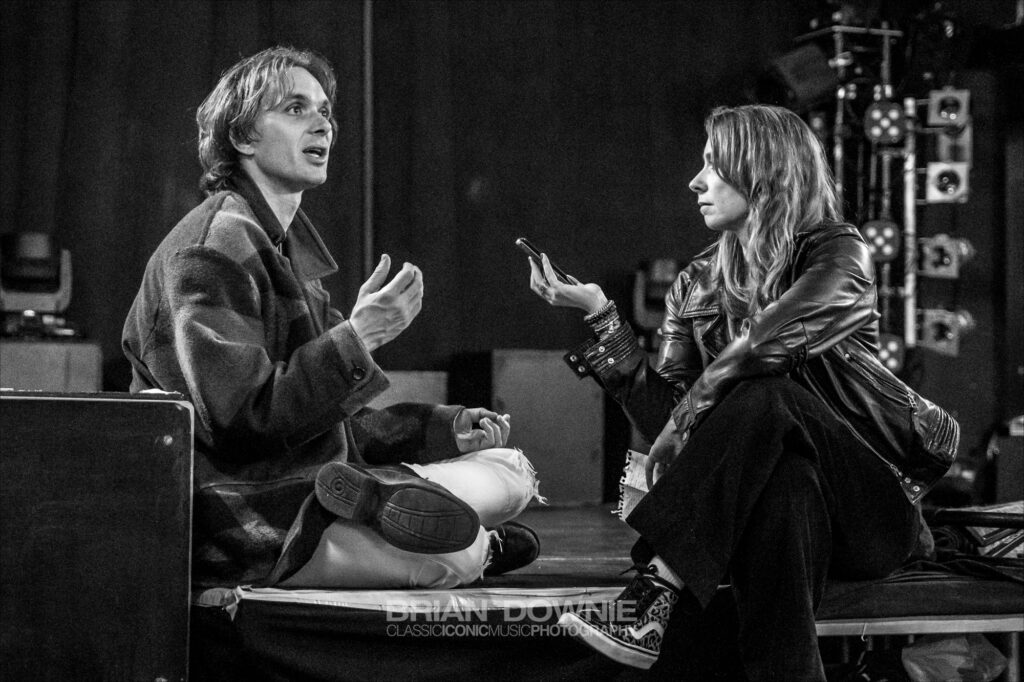
the raw energy of Iggy Pop and the mysticism of the Doors” We can say that you are not afraid of comparison! I must say that after seeing you live, I now get it.
Iggy Pop – I don’t know where that comes from, maybe the attitude? Anyway my favorite band is Led Zeppelin.
Nevertheless your new album Dreaming in Dystopia (released at the end of 2023) is a bit different from the others; more ethereal, more aerial, more psyche than rock. Why choose this direction?
Because we do creative rock ! That is to say, everything is possible, with each album we can go in the direction we want. I would say that the first album Western Lies is really experimental, the second transgenic and progressive. DSM III is some crazy, psychedelic blues rock and this one is almost folk, it’s softer. In fact we recorded Dreaming in Dystopia and DSM III at about the same time, and with DSM III we needed to express all the rage, the madness that there was during the pandemic. And with Dreaming in Dystopia it’s the album of hope, the light! So it’s like everything in music; its contrasts. We like silence, energy…
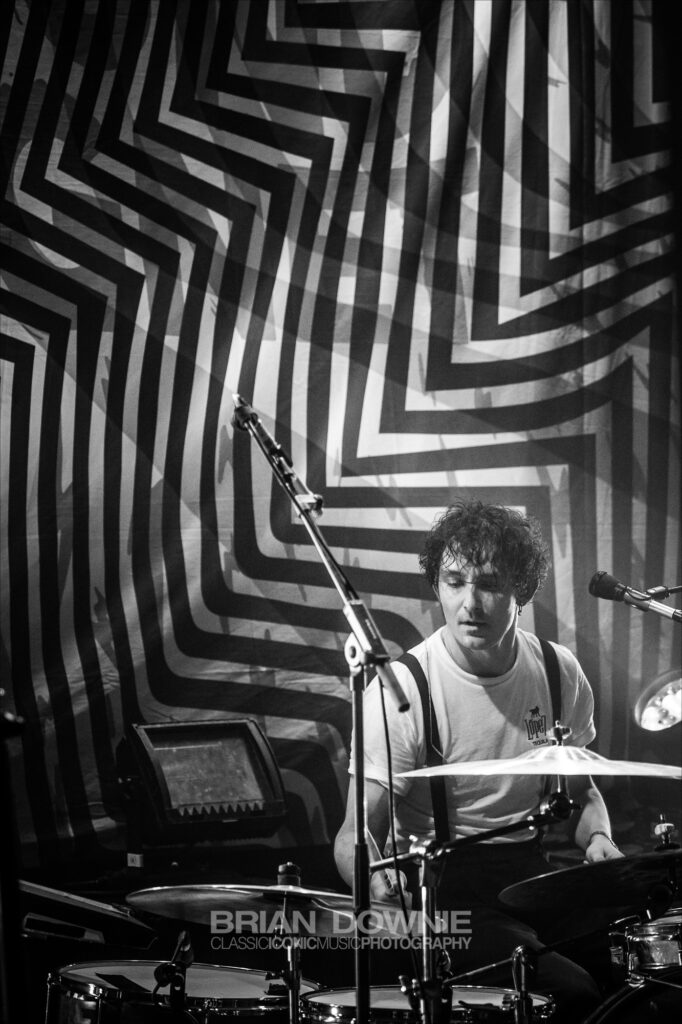
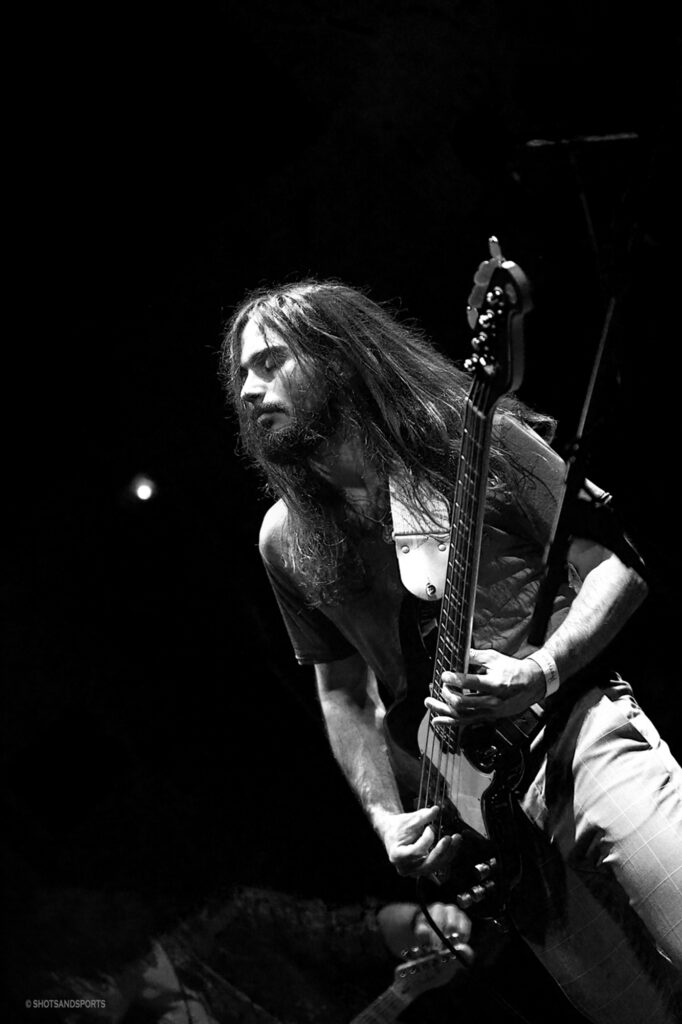
Is there a message behind this album?
Yes, it is dreaming despite dystopia, meaning everything can go wrong around you. With music you can always dream, there is the message of hope. There are finally a lot of dark lyrics in this record but all this tainted with something positive. With hope.
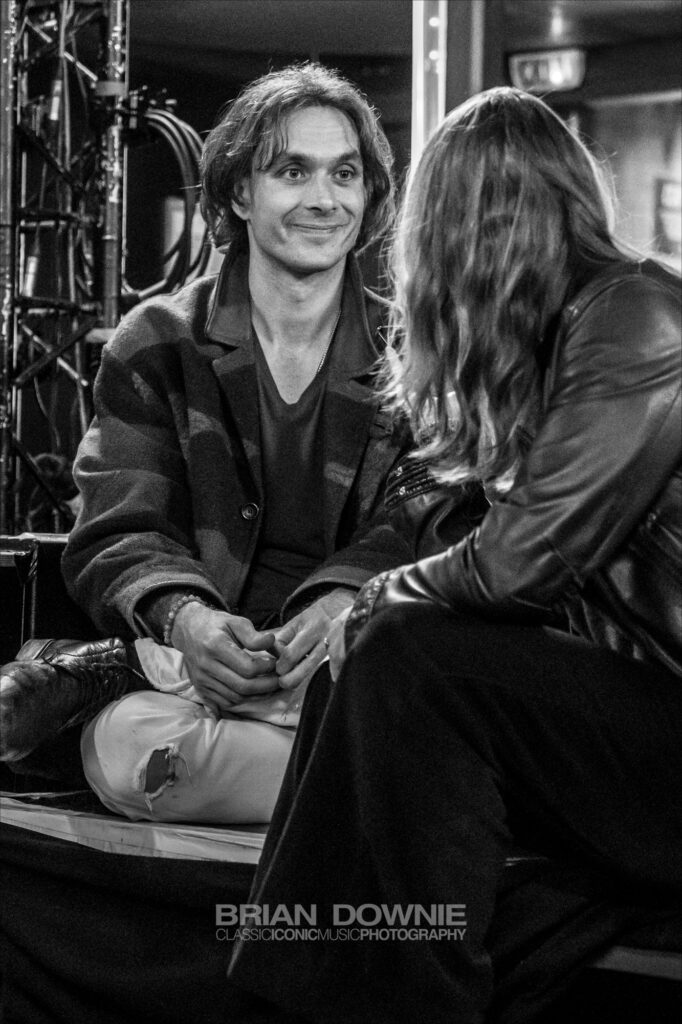
When did you record it, consideing you have spent the last two years on the road, from Europe to Mexico via the USA?
For most people the pandemic was a nightmare but for us it was the period when everything was actually created. We were already touring a lot before and it was difficult. It’s hard with rock today. We are a Swiss band so we do not have this little boost when you are an English, American, Australian band, everything is more difficult. During COVID the first thing we did was to record a live session called Live Alert and it helped spread word of the band because people could finally see how we play in real life. There are videos, it’s a filmed live session, and there is also an album, and it really helped the band to become known internationally. At the same time we recorded DSM III and just after we recorded Dreaming in Dystopia – all this in the space of a year, it was extremely productive! I think in one year I wrote the equivalent of two to three other albums, so we have enough songs for the rest of our career! It was really a hyper-creative period.
And at the same time we learned a lot of things; we learned how to sell the band, how to make the band exist on many levels. Before the pandemic we were an unknown band, after the pandemic we started to turn and have audiences all over Europe. We went to Mexico. We were really surprised – we went last year for the first time, we left the bus and six hours before the concert people were already waiting for us! There was a line and I was wondering if they were going to see Metallica! But no it was for us! It was amazing, they knew the lyrics by heart!
But how did it reach Mexico?
Thanks to the Live Alert session, which started being shared, then DSM III which is the album that I would say sold best. And with Dreaming in Dystopia, which is different again, it allows us to have another audience. There is even a ballad on it, Lonely Bird, and thanks to that people who would not even listen to rock will come and listen to us.
Finally for a long time I found that it was our greatest strength but also our greatest weakness to make this “creative rock” because today everything must be in a box, so that people know what they will listen to. So it was our biggest weakness for a long time because in fact nobody listens to creative rock, it does not exist! We made music that didn’t exist for people, so it was very hard to sell it. It was our greatest weakness but now it’s our greatest strength because it sets us apart from all the other bands, to be different. So yes, it takes a long time, you have to grow fan by fan… For example if you take a melodic death metal band, the guys who listen to melodic death metal, as it is classed, if there is a melodic death metal concert at a place, they will go to see this concert even if they do not know the band. So, it’s easier to start like this. For us, we couldn’t even really describe what we did so it was a bit of a challenge at the beginning.
But the trials that you have on your way finally makes you stronger: the fact that we could not find concerts because we are Swiss, that in Switzerland no one listens to rock, at first it was frustrating. But it made us work ten times more than an English group because we locked ourselves in our rehearsal room and voilà, in adversity you build even stronger. So finally I enjoyed this journey because it allowed us to find ourselves.
The title Melodies From Distant Shores which opens the album announces this psychedelic color and takes us almost into a shamanic dream, confirmed with the video. How did you work on it for the live show, how do you make it feel “high “? I almost expected an ayahuasca stand! (laughs) You have a bit of this shaman attitude on stage too that takes us very very far…
It has grown over time. It all comes from the song Body in Mind that is on DSM III, it’s actually a joke. At the time of Body in Mind there was this hype for spirituality, you see, people who lose faith in their religion and look to Indian spirituality etc… And I never liked what was fashionable, so when everyone was listening to hip hop, I was listening to rock. I didn’t want to do what everyone else was doing. So, seeing people who are not at all spiritual start to become spiritual, I wrote this song Body in Mind where the protagonist tries to flirt with girls by acting hyper-spiritual, hyper-connected, all that. And actually, by doing this song on stage, I played the character, and it became “real”.
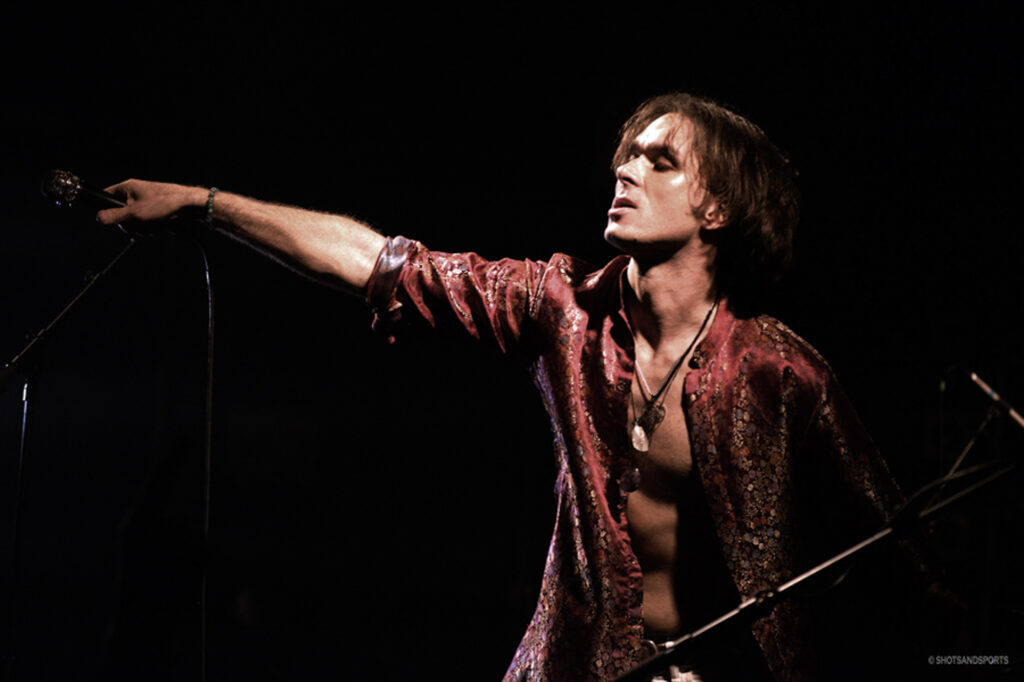
I always had a little bit of it in me anyway because I always loved the Doors and for me music is something magical, deep. In our lyrics there will be criticism of religion, but the theme of spirituality, without realizing it, has always been there on every album. And finally I understood that my religion is music! In fact, for me, music was really an access to something that we can call the sublime, which goes beyond our human conception. And that’s why I was not religious, because in music I found, from a very young age, all this spirituality without realizing it, a truly beautiful and magical world. For me music is something healthy, it’s the key to people loving each other! You see, we go to the other side of the world, to Mexico, and we manage to communicate with these people because they have the same passion as us. And if we want to find a religion where people don’t kill each other, it’s music, because with music people can only love each other!
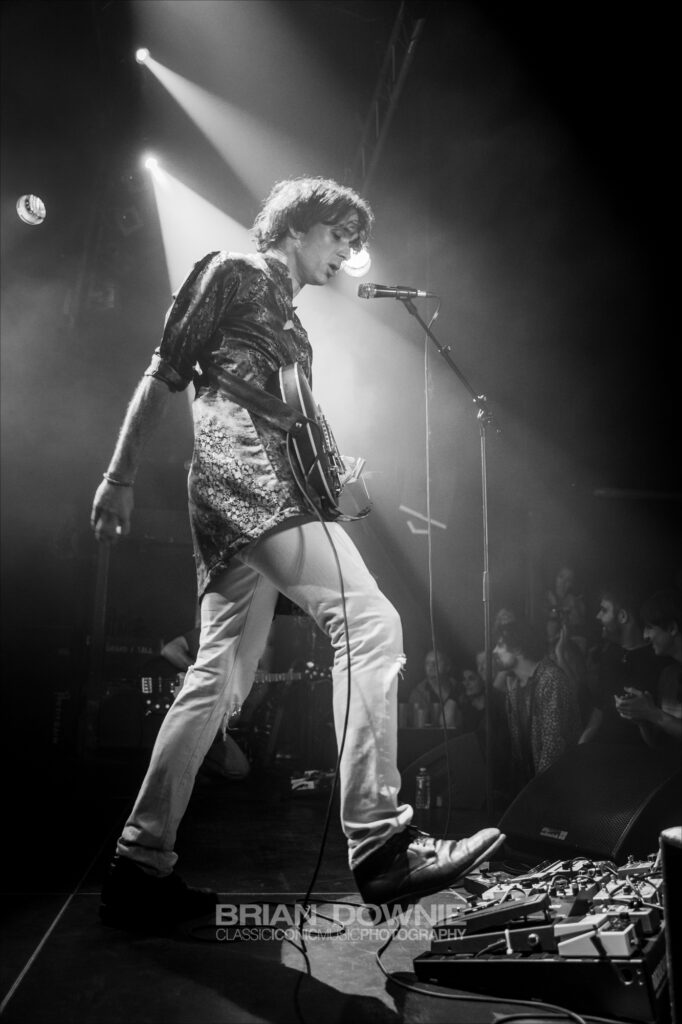
Your artwork is particularly colorful and with a certain continuity. Who is behind it? We also find the keyhole already present in your previous artwork, your logo, what is the meaning? It reminds me of Alice in Wonderland, an invitation to enter a parallel world …
It’s a bit like that, it’s on every album. It’s our drummer Maxime who makes the covers. The keyhole means access to this world, this spirituality. It is always there because it represents this world that we worship, this sacred side, because basically we are fans of music, even before making it.
It’s also because we were little Swiss guys who don’t have access to this kind of stage. There are no bands in Switzerland, so it’s a dream. The guys from Birmingham, Black Sabbath, Led Zep, they all come from there, it’s much less magical place than for us. The first time we played in London it was magic! I was so stressed that I said “uh Good evening New-York”! like the little peasant who has just arrived in town. Like Rastignac from “Le Père Goriot”!
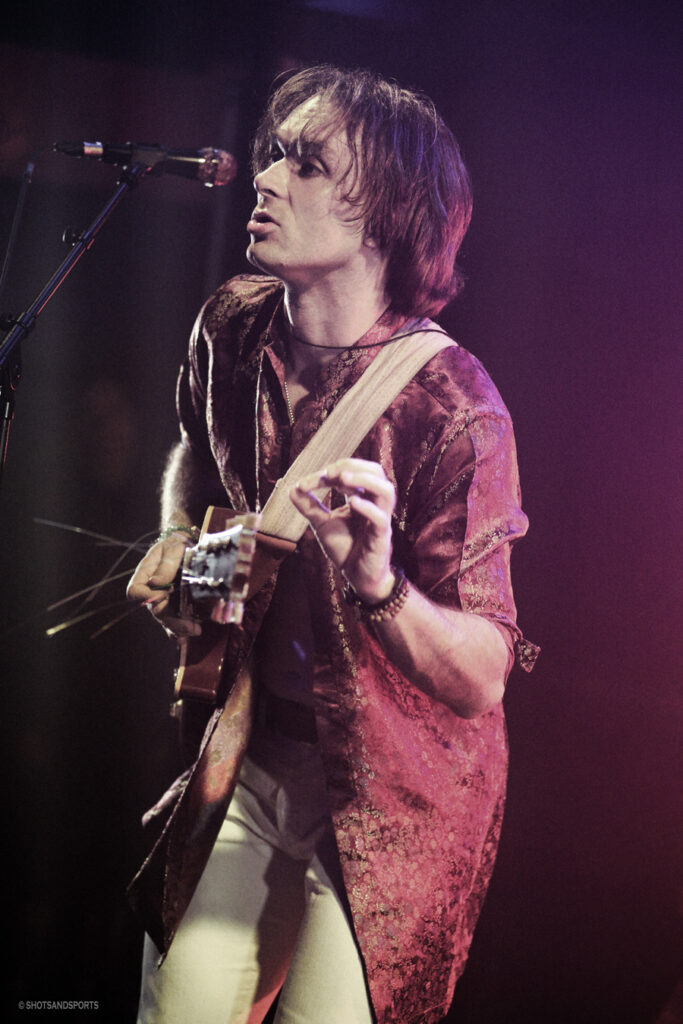
How do you explain that there are not more Swiss musicains or bands in Europe and even internationally ? Are there any particular difficulties? You yourself are now on an Australian label far from your native Switzerland …
Pffff we do what we can! Krokus (another Swiss band) is hard rock from the 80s so it’s hard to compare, it’s another world. Young Gods (also Swiss) we know them personally, they did something, they also created a style of music, a movement, industrial rock, so they managed to do something international, but it was hard for them too because they’re Swiss, so you’re not attached to anything.
And they are not very well known either.
Not very well known no. Our goal is to exist in this world where live music is getting lost, where our ideal of music no longer exists too much, where music becomes very synthetic… Music always represents its time: we are in a robotic world, in a dehumanized world and so, it is almost an ideological war that we wage, it is the crusades! The crusades of love! There is an ideological struggle in bringing back emotion, depth, beauty. Live, what happens live, music played by humans for humans, together.
We are not booked to play festival because for them it is only rock they want. They say to themselves that it is hard rock with big guitars, but it has nothing to do with it! But they have this cliché and it stops there. But rock allows such richness, such expressiveness, that few styles allow I think. In reggae you have codes. Rock is not a codified music, it’s super cool. I love this 60-70’s period, because it was just creative rock at the time: you listen to the Doors, there was no one who sounded like the Doors, so they could do whatever they wanted, that’s what’s so cool. You listen to the Beatles, each album is different, Led Zeppelin is the band of magic, with each album it’s another universe and in fact this is a musical ideal that we want to continue, it’s what makes us dream.
How did you get out of Switzerland then?
It was very difficult. Now I will talk more about management. We saw that music was not enough, you could make the music you wanted but it took a little time, so we had to find ideas. One of the ideas was to create a fake manager at first. I wrote emails as Derrick Rodriguez, pretending to be a wealthy manager, and talked to Dutch people on the phone, without any idea of the technical terms I should use. And I was actually trying to say, “Yeah, I’m in Zermatt with my family in our cottage and everything …” and that’s how we managed to play gigs in the Netherlands and get out
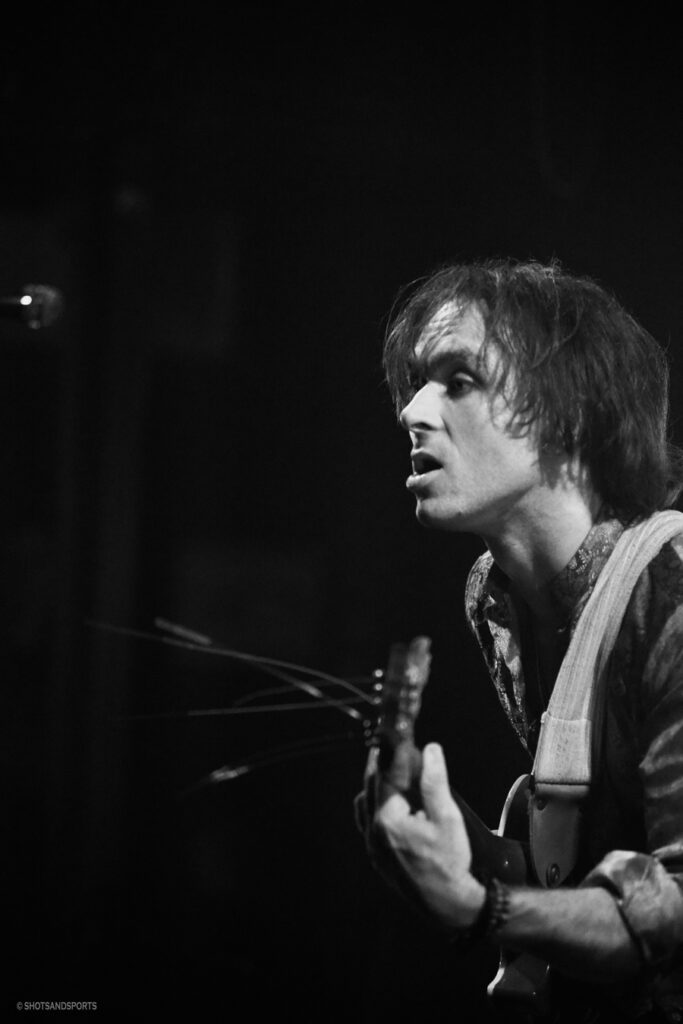
of Switzerland! Also, at the beginning we played any concert we could, the toilets. As long as we could play for us it was that, it is the stage that forged us…
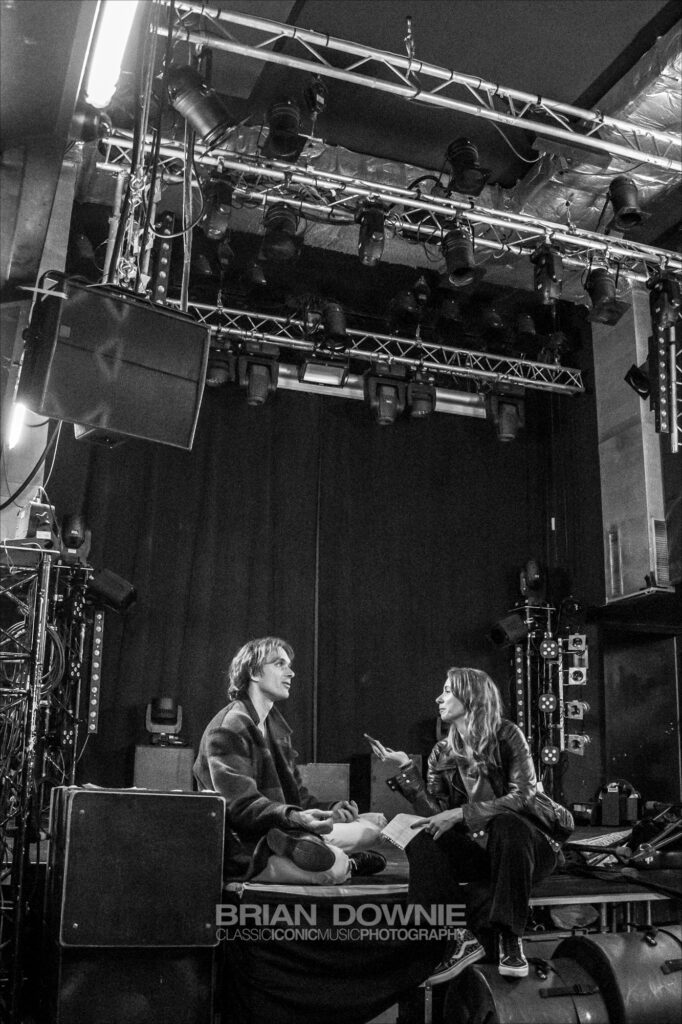
You are clearly a live group…
Everything, stage, studio. It’s infinite music but we forged a lot on stage yes. And on stage there are no lies, many people say “I listened to this and it’s less good live than in studio” because in studio you can cheat, you can reedit – we come back to the world where everything is robotic : you can perfect everything. But live after you have to show what you can do for real. In our case, we try to recreate the live in the studio, and we try not to cheat, not to edit, to keep the music super natural.
The road is still long but we must not compare ourselves. As we are not American we will never be in showbiz. But do we want to be in showbiz? Because when you’re in showbiz, your label tells you what to do. While we have the freedom to make the music we want, it’s a freedom that few bands have had in the history of music, because you risk remaining an underground band. We can start to perform in good venues and do as we want, and I think that’s what the public needs today, it’s to see something that is ultimately artistic, and that side I find very healthy. I find it very healthy that we have to do the booking ourselves, that we have to do the management, because it is our project, it remains human and therefore it is hyper-connected. Everything we do, from management to booking, stays connected to music.
This is our band, we love it, we love music in general and above all, since the beginning, since we were teenagers, we said “no plan B”. In our heads it was that, we knew, “no plan B”, a little unconscious, a little naive, we were very much dreamers but finally you cannot do otherwise. Either you say it’s too difficult, or you are all in. We met with failure again and again but now it’s all fun because we fought to get what we wanted. Imagine if at twenty you are already touring in super big venues and you had to do nothing for it? What do you do? How do you make your second album when you have already had everything and it has gone to your head? We enjoy every moment, every concert, even if there is a concert with fewer people. For us the quality is not proportional to the number of people, whether there are fifty or five hundred people. Besides, I even think that when there are too many you can no longer transmit in such an intimate way. This is the last word!
Interview by Caroline Landré – Photos by Caroline Landré and Brian Downie
